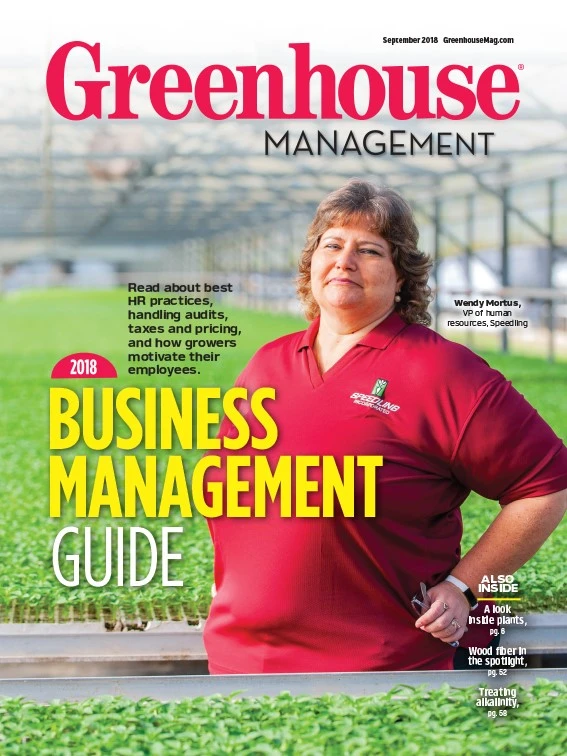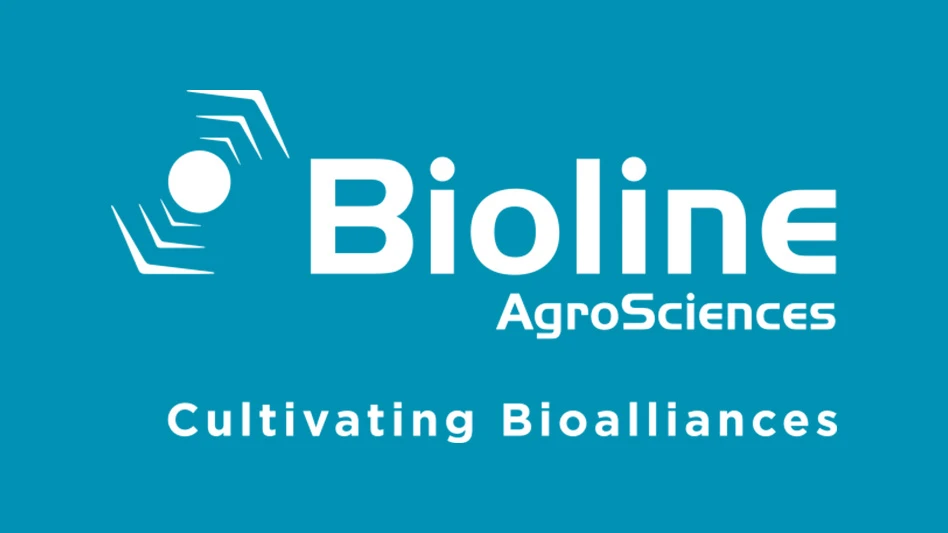
The Cultivate’18 trade show may have opened on a Sunday, but the Greater Columbus Convention Center was already buzzing as of Saturday, as many attendees took advantage of the optional tours and educational sessions offered. The Nursery and Landscape, Greenhouse Production and Garden Retail tours visited businesses near and far to the capital city. See sidebar for more on the greenhouse tour.
For the Cultivate trade show, AmericanHort organizes more than 100 educational sessions and opportunities each year for growers, retailers and more. Saturday’s talks covered topics from whitefly control to Millennial marketing.
During a session about whiteflies, Dr. Lance Osborne, a professor at the University of Florida’s Mid-Florida Research and Education Center, offered three key takeaways about whiteflies that growers should know.
- B-type and Q-type whiteflies are visually identical. For growers to properly identify which type of whitefly is in their greenhouse, the whiteflies must be tested visually. And, according to Osborne, the difference does matter. Q-type whiteflies are more resistant to insecticides than B-type and feed longer. This means that Q-type whiteflies carry a greater chance of spreading disease across a greenhouse than B-type whiteflies.
- According to Osborne, ongoing research being conducted at the University of Florida encapsulates the whitefly problem. As of spring 2016, six counties in Florida (out of a total of 67 counties) have reported whitefly infestations, but none have yet been overrun by the problem. Osborne says 26 of the 50 states have reported having some whitefly population, although there are some states where no testing for whitefly populations have been done and Osborne suspects there are whiteflies. This means that while whiteflies are a problem that growers need to be aware of and understand how to combat, it’s not something that is currently rampant.
- Osborne says there are ways to solve the whitefly problem. He says that tested rotational programs have shown that they can reduce population size, but not eliminate every single whitefly. And if growers want more insight into their whitefly problems, and perhaps identify if they are being plagued by B-type or Q-type, free testing is available. Osborne recommends contacting Dr. Cindy McKenzie, an entomologist with the United States Department of Agriculture (USDA), to receive free — and anonymous — testing on whiteflies. Her email is Cindy.McKenzie@ars.usda.gov
During the educational sessions that focused on reaching consumers, one of the key takeaways was that today’s shoppers are looking for customization, expertise, knowledge and experiences that make them feel special, which are all things independent garden centers are uniquely positioned to offer. To hear more about these sessions, watch this video.

The keynote presentation from Scott Greenberg was a jolt of energy to start the Sunday morning of Cultivate’18 off right. Greenberg explained why some leaders achieve better results than others with the same tools and encouraged attendees to light a fire within their employees, rather than under them. He gave potential leaders five strategies to enhance their mindset to increase their success: clear your head, continuously improve yourself, care for the company’s culture and people, serve others and express gratitude. After all, Greenberg said, skillset is important, but mindset and the human side of business is equally important. Watch this video for more from the keynote speech.
Whether it was a growing-centric or retail-focused educational session, many of the presenters used new scientific developments to propose innovative solutions to existing problems. For example, attendees sat in on sessions where they learned how light scientists are looking into night-interruption lighting for plant disease prevention; how retail consultants are using science-driven techniques to develop more effective merchandising to increase consumer appeal; and how growers and researchers are combating common young plant production problems.
Greenhouse Management, Garden Center and Produce Grower columnist Leslie Halleck gave a presentation on how women can find their inner strength to succeed in the horticulture industry. Halleck addressed sexual harassment and the #MeToo movement, as well as other difficult situations women face, such as the pay gap and when men take credit for women’s ideas.


One remark Halleck herself dealt with was earlier in life when she was told she wasn’t college material, before she earned multiple degrees and started her own consulting business. More recently, she was told she isn’t fulfilling her role as a woman because she has decided not to have children. “Be careful not to listen to those other stories that people tell you about yourself because you might just believe them — and that’s very dangerous,” she told her audience. “You have to make sure you’re telling your own story and not falling victim to those societal gender roles.” She then explained how women can advance in life by being direct, assertive and confident, as she has done.
The show’s New Varieties Zone provides a spot for visitors to see the latest flowers and foliage each year. With 34 companies showing off their new selections, there’s no doubt someone will find the next big seller. Check out our video to learn more about the new plants displayed by All-America Selections.
Sunday ended on a touching, heartfelt note, as Greenhouse Management and Nursery Management magazines honored recipients of the 2018 Horticultural Industries Leadership Awards. Family, friends and colleagues traveled to celebrate the achievements of the HILA recipients, who you can read more about our July issue, here.
The HILA Class of 2018 (pictured with Nursery Management editor Kelli Rodda and Greenhouse Management editor Karen E. Varga above) included:
Nancy Buley
J. Frank Schmidt & Son Co.
John Hoffman
Hoffman Nursery
Barbara Jeffery-Gibson
Jeffery’s Greenhouses
Jim Monroe
Greenbrier Nurseries
Amy Morris
N.G. Heimos Greenhouses/Millstadt Young Plants
Peter Orum
Midwest Groundcovers

Sunday and Monday saw presentations by the 2018 HortScholars — students in horticulture who won scholarships to attend Cultivate to network and learn about the industry. Aaron Sledge, a plant science student at Pennsylvania State University who works with the Phipps Conservatory and Botanical Gardens in Pittsburgh, talked about interior plants. A few of his favorites are Philodendron, Sansevieria and ZZ plants. HortScholar Melissa Eggleston, a horticultural science major at Michigan State University, gave a presentation on irrigation, including the importance of using flow sensors, weather stations and grouping plants by their water needs. Automation was another key point — Eggleston said many irrigation systems now use cellular data instead of WiFi, while others offer in-phone apps that don’t require growers to walk to their controller.
HortScholar Coralie Farinas, a PhD candidate in Department of Plant Pathology at Ohio State University, discussed biocontrols. Examples of biocontrol effectiveness include plant-growth-promoting rhizobacteria on dianthus and Trichoderma, which promotes foliage growth on crops such as begonia when facing pathogens like rhizoctonia. For more information about the HortScholars, visit here.

Dr. Charlie Hall, who needs no further introduction, spoke to attendees in educational sessions and in a keynote presentation about various economic factors, such as the housing market and consumer spending trends, affecting the horticulture industry. He also discussed that despite wages increasing, people do not have as much money to spend and what impact that has. Check out highlights from his presentation here.
AmericanHort’s senior vice president Craig Regelbrugge also spoke on the current political factors impacting horticulture. He talked at length about the possible “blue wave” that would see Democrats take back control of Congress from the Republicans in November, and what that would mean for the horticulture industry. Watch a recap of his talk here.
Get curated news on YOUR industry.
Enter your email to receive our newsletters.
Explore the September 2018 Issue
Check out more from this issue and find your next story to read.
Latest from Greenhouse Management
- Super Charged Moon Juice from Moon Valley Nurseries now available nationally
- 2025 Proven Winners Horticulture Scholarship applications now open
- How to improve inventory and shipping management in the greenhouse
- Leading Women of Horticulture: Anna Ball, Ball Hort, and Terri McEnaney, Bailey Nurseries
- GM CEA HERB Part 2: A guide to increasing the sowing density of culinary herbs
- GM CEA HERB Part 1: Best practices for producing culinary herbs in controlled environments
- USDA fires experts on invasive pests, including Asian citrus psyllid, chilli thrips
- CEA Alliance celebrates bipartisan introduction of Supporting Innovation in Agriculture Act






